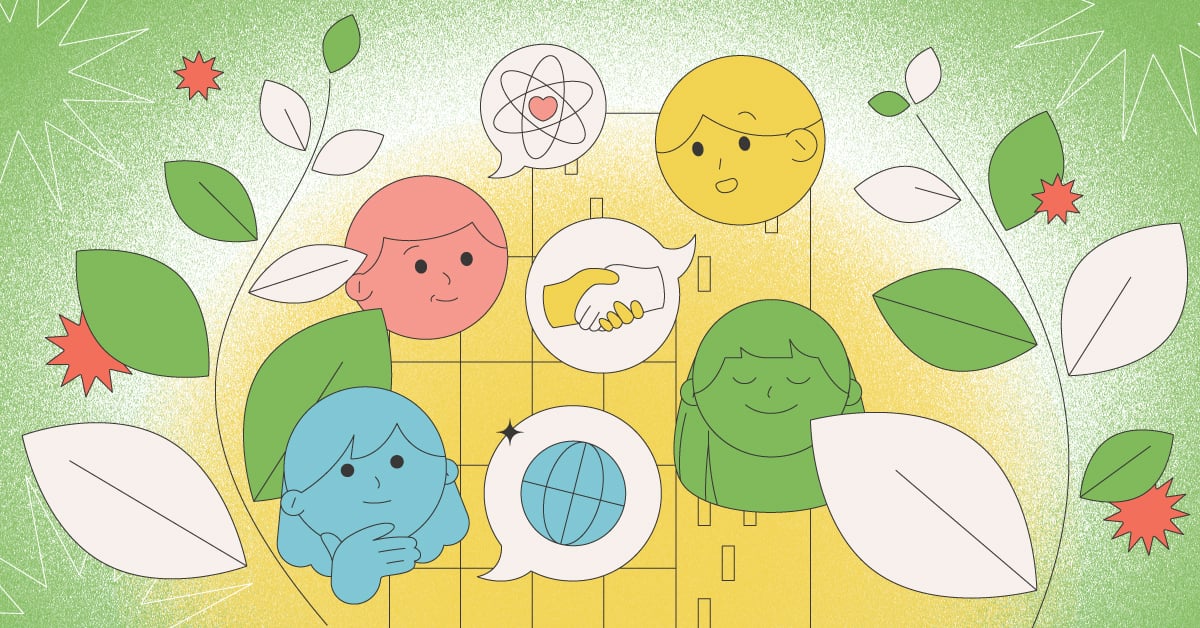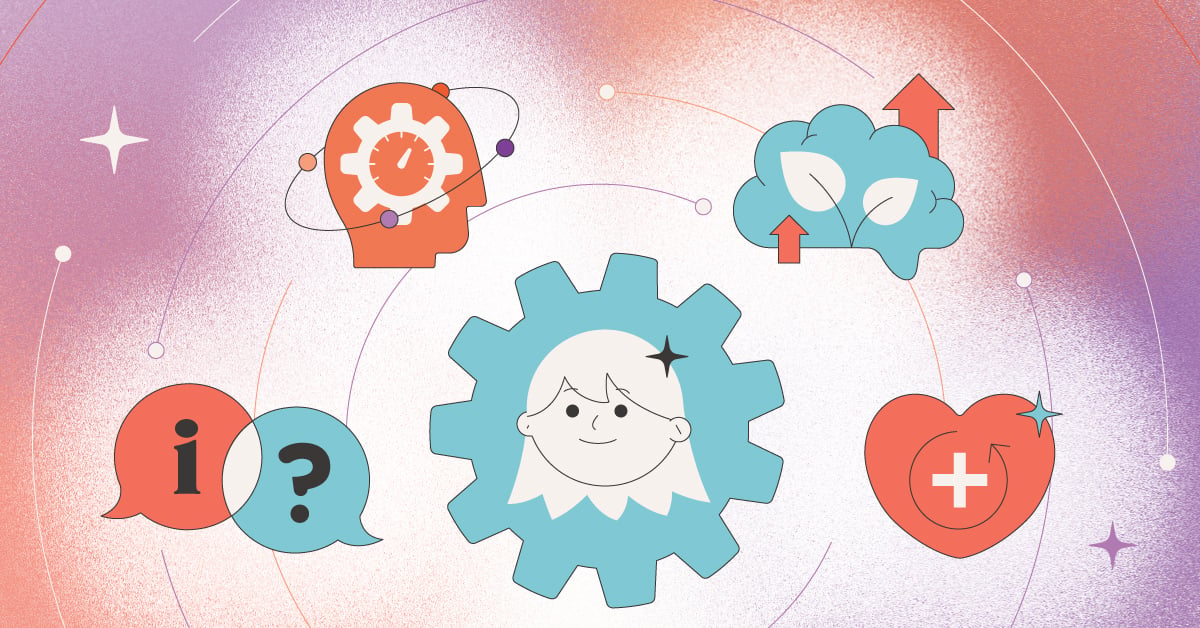
Do you want to discover practical strategies to navigate workplace dynamics with grace and strength? Are you ready to take charge of your emotions and reach the next level of success in your workplace?
If so, you need to focus on emotional resilience. This skill is foundational to success in personal and professional relationships and can prevent disengagement and burnout.
But what exactly is emotional resilience? How can you work on developing emotional resilience in the workplace?
I got to sit down with Vanessa Boetcher, Chief Operational Officer of TTI Success Insights. Her personal experience in emotional management helped me unpack what emotional resilience truly means and how we can cultivate it in our daily lives.
TTI: Thanks for sitting down to talk this through with me! I know you have a lot of experience with emotional management and resiliency in the workplace. Could you start us off with your definition emotional resiliency?
Vanessa: Emotional resilience is your ability to immediately recover from heightened emotions, professionally or personally. It's shown in how you handle difficult situations, and also how you handle very positive situations. It’s much less common, but sometimes you’re so ecstatic about something that it pulls you from your focus. To me, it really means how many scenarios you will be able to handle and truly manage properly, not letting them affect you.
TTI: So it’s kind of like a mindfulness approach. Like you feel the feelings, but then you let them go instead of dwelling on them.
Vanessa: Exactly. Emotional resiliency in the workplace isn’t about a lack of feelings. You can be impacted in the moment, and it’s normal for difficult situations to affect you in many different ways: your productivity, decision-making, and how you perceive yourself. The most important thing, however, is how you move forward. You have control over that. You get to decide how you react and internalize.
TTI: I love that. You’re in charge of you.
Vanessa: You’re in charge of you. The moment you make yourself aware of that, that’s when you’re on the other side. That’s how you build emotional resilience.
TTI: How long did it take you to get to that point?
Vanessa: A long time. I’ve been working on my emotional resilience for years. In the past, I would immediately take it personally. I would go down that rabbit hole and ask, “Why me? Why is this happening to me? Why is someone else speaking to me like this?” But I found that having a strong feeling of ‘this shouldn't have happened to me’ was never helpful. I needed to find a way forward.
TTI: Having had that perspective in the past, how did that change? Was it just about building awareness? To me, it sounds like you learned how to reclaim your power from the difficult situation. How did you do that?
Vanessa: It’s all goes back to knowing that you have power. If you take a moment to step back, you can realize that other people’s reactions are not about you. I detach myself from the situation. All of a sudden, it's not about Vanessa. It’s about the problem and finding a solution. Taking that perspective immediately clears my head.
TTI: I’ve seen that discussed in conflict resolution a lot—perspective really matters. It’s not you versus me, it’s us versus the problem. Now it’s not personal, it’s collaborative.
Vanessa: Exactly, and that works in professional settings, too, because you take yourself as a person out of the situation. So now it's not really about you. Little interactions really do take a toll, and it’s natural to turn defensive and feel like something is unfair. But what I’ve learned is that life simply isn’t fair, and we all have different perceptions of our situation. There's your truth, my truth, and somewhere in between, which is the real truth.
TTI: How do you determine that? How do you find that truth, moving past your own perception?
Vanessa: It takes a lot of emotional honesty. You need to really be able to examine a situation and find out either where you went wrong, or where others perceived that you did. And that self-reflection can be private! You don’t have to share any of that with anyone else; it’s for you and your development, but if you can’t recognize your weaknesses, you can’t move forward.
TTI: Not being defensive, but offensive in your development.
Vanessa: Yes. You’re not here to justify yourself. You’re here to grow.
TTI: That’s really powerful! Do you feel like you started at that place or learned over time?
Vanessa: I learned over time. I’m not super positive naturally, I’m looking at things practically, and I’m hard on myself. I have a hard time forgiving myself. So I taught myself how to be more positive, because I really saw the effects and how it changed people. Now I see how much being grateful benefits me.
TTI: When I’ve been in similar situations where I’m being too hard on myself, I’ve asked the question: “Who is this benefiting?” And the answer is, no one. Nothing helpful is coming out of this. Wearing yourself down is not benefiting anyone, especially yourself.
Vanessa: Exactly, sometimes, the only thing you can do is learn from a difficult situation. Again, you don’t have to tell anybody.
TTI: I think that’s such good advice. Kind of doing an internal audit.
Vanessa: Exactly.
TTI: Where do you keep those thoughts? Do you write them down?
Vanessa: I do it all mentally, but you can write it down if that’s more helpful to you. Just being able to review all of your thoughts and feelings on a subject can prepare you better to move forward. Another thing I do is look at the worst possible outcome and plan for that. Once I have a sense of, “Okay, here is how I’m going to handle this situation if something awful happens,” I find the rest of it to be a lot more manageable. I work backwards from that.
TTI: As we’re talking, I find myself wondering—you have a lot of advice for emotional resilience when you’ve made a mistake, but what about when you’re not at fault in a situation?
Vanessa: That’s when you have to realize life isn’t fair. You can’t control other people, but you can set limits. If someone’s attitude is bad, if they’re affecting me with that, you can’t fix them. You can set boundaries. You don’t carry as much at the end of the day. You can let something just be unpleasant, but you have the choice of how it will affect you.
TTI: So you're in charge of yourself, is what I’m hearing. That’s what you can control: you can control yourself in your interactions.
Vanessa: Yes. People think emotional intelligence is about not feeling any emotions. That’s not true. Frustration is going to happen. You need to acknowledge it, and feel it, and then move forward. That’s when you become truly resilient.
There you have it!
By acknowledging our emotions, setting boundaries, and focusing on solutions rather than dwelling on problems, we can build a stronger, more resilient version of ourselves.
Whether you're just starting your career or looking to enhance your emotional intelligence, the strategies shared here offer a valuable roadmap for navigating the complexities of the workplace with confidence and grace.
Thank you, Vanessa, for sharing your wisdom and experiences with us!
If you want to expand your knowledge about EQ, we’re ready to help. Contact us here to get started.



